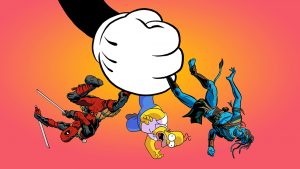
By:
Gregory P. Bufithis, Esq.
Founder/CEO
The Project Counsel Group
15 December 2017 (Paris, France) – The Walt Disney proposed takeover of 21st Century Fox is likely to raise thorny regulatory concerns at a time when the Justice Department has been putting media mergers under the microscope. I will have a more detailed memo out to media clients this weekend but just a few points:
- The Disney-Fox deal would be a classic “horizontal” merger because the two companies currently are direct competitors. The proposed union would eliminate a competitor from the market, and the Justice Department has long been wary of those deals.
- Nearly three years ago, the Justice Department was gearing up to block Comcast Corp.’s proposed takeover of another cable company, Time Warner Cable (formerly part of Time Warner Inc.). The government frowned on that proposed merger even though the two companies served separate geographic regions. Comcast withdrew its offer in light of the government’s opposition. Time Warner Cable was eventually acquired by the much smaller Charter Communications, which became the largest pay-TV operator in Southern California under a service Charter calls Spectrum.
- The AT&T-Time Warner Inc. deal is known as a “vertical” merger because the two companies generally do not directly compete against each other, and historically the government has given a green light to these types of mergers.
- The Disney deal to acquire key parts of Fox would create an unprecedented entertainment colossus and could trigger antitrust concerns because it would erase one of the six major Hollywood studios and would fortify Disney’s dominance in sports broadcasting.
- Telling point: the companies’ agreement calls for Disney to pay a lofty $2.5-billion breakup fee to 21st Century Fox if the merger is blocked by federal regulators on grounds “relating to antitrust laws or communications laws.” Disney pretty confident, but Fox hedging its bet.
- Sports could actually be a big issue. Disney, which owns ESPN, would take over 22 regional sports channels under the deal, including Prime Ticket, Fox Sports West and Fox Sports San Diego. The merger would not include Fox’s FS1 and FS2 sports channels, but the deal still could give Disney greater leverage with cable and satellite distributors. Any increase in Disney sports programming will be extremely problematic and will get intense scrutiny.
- The big play for Disney is that it would take control of online streaming service Hulu by amassing a 60% stake, which would give it a huge presence in the emerging digital media market. Given the size of the acquisition, it will raise eyebrows in Washington. Will it reduce options for consumers or increase prices? Will it give Disney undue power? Power not only in terms of consumer choices and prices, but power for the back-end of their business — theater owners etc.
- The deal quickly drew opposition. As expected the Writers Guild of America West, the union that represents writers of movies, TV and other media, was out of the box first: “The antitrust concerns raised by this deal are obvious and significant by substantially increasing the market power of a combined Disney-Fox corporation. It will work to ensure our nation’s antitrust laws are enforced.”
- The Justice Department already has sued to block another massive media merger — AT&T’s proposed $85-billion purchase of media company Time Warner Inc., which includes CNN, HBO, TNT and Warner Bros. Studio.
And, oh, the politics. Trump lamented the AT&T/CNN tie-up a year ago, when he was still on the campaign trail, saying: “It’s too much power in the hands of too few.” After the Disney-Fox deal was announced, Trump called 21st Century Fox Executive Chairman Rupert Murdoch and “congratulated him on the deal,” White House press secretary Sarah Huckabee Sanders told reporters Thursday.
NOTE: the real reason for that phone call? Insiders say it was because Trump wanted to make sure Fox was not selling Fox News.
Disney is expected to argue that it needs to bulk up its entertainment assets to compete with video and other entertainment inroads being made by technology titans Google, Facebook, Amazon and Netflix. The deal appears designed to bolster Disney’s plans to launch its own streaming services in the next two years. And as I have noted this year in my reports from media/technology conferences, many media executives have lamented a shift in power in their marketplace and Washington’s seeming willingness to allow technology companies to steamroll traditional providers. In October, for instance, at the Media Insights conference, media mogul Barry Diller said it was becoming nearly impossible to compete with streaming giant Netflix and the billions of dollars that Netflix is devoting to original programming. Any antitrust review would have to take that argument into account.
But I am not so sure the growth of Netflix, Amazon and others is enough to let Disney clear its antitrust hurdles with Fox. It’s an argument people will make, but it’s almost too early to tell. It has a lot more weight than it did five years ago, but it depends on how much credence you put in it.